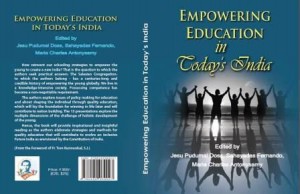Salesian Mission and the HIV prevention programme in South & East Africa:
The Background: It is true that there was an “Life Choices: Abstinence and Being Faithful Programme” run by the Salesians in South Africa, Kenya and Tanzania. It is important to note that while in South Africa it was run only in Cape Town – in one community, in Kenya and Tanzania, it was run in all the institutions of Salesians of Don Bosco and some of the institutions of the Salesian Sisters. It is also true that the five year project (2005 to 2010) was funded by USAID and PEPFAR. The Salesian Mission at Washington had applied for the funding on behalf of the Salesians in the three countries and had acted as the office for monitoring and evaluation of the project.
The current web-news concerns the allegations by means of a journalistic report made by Lepanto Institute and re-reported by […]
Month: November 2015
The methodology of Indian education: An autoethnographic assessment
 How to cite this work:
How to cite this work:
Selvam, S.G. (2015). The methodology of Indian education: An autoethnographic assessment. In J. P. Doss, S. Fernando, & M. C. Antonysamy (eds.), Empowering education in today’s India (pp. 203-222). New Delhi: Don Bosco Youth Animation – South Asia.
Abstract
There are basically three possible approaches in scientific enquiry.[1] The third-person approach in science is informed by a positivist epistemology where truth is said to be what can be objectively observed. Physical sciences and life sciences adopt this methodology and derive their conclusions by means of measurements and statistics. Numbers offer an advantage of objectivity. The second-person approach believes that objective observation is not really possible, since the observer always causes their shadow on the observed. Hence truth is actually a construction of the interaction between the observer and […]